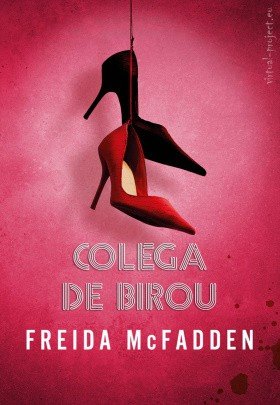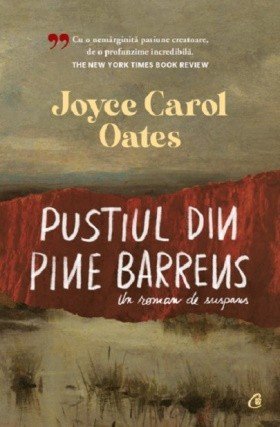Juice nods. “A hawk just picked it up right in front of us.”
“It was gruesome,” Jim says.
Phoebe can feel Jim trying to impress them all with his stories of adventure and battle and death. She scans his face for evidence of his sister. Was Wendy a brunette, too? Did she have the same big oval eyes? The same aggressive stance, always leaning forward a little too much when she talked? Jim has the energy of someone who should be an investment banker or a car dealer or a wedding singer, someone who is out there in the world, but this is probably because Phoebe is a reader, always expecting people’s careers to match their personalities exactly. In real life, Jim is an engineer.
“In my free time,” Jim tells Phoebe, “I’m building a seaplane.”
“That’s impressive you know how to do that,” Phoebe says.
“He doesn’t actually,” Gary says.
“You build it,” Jim says. “That’s how you learn. And actually, you become certified, too. In the state of Rhode Island, you build a plane and voilà, you’re a certified plane mechanic.”
“But how do you know it’s a good plane?” Phoebe asks.
“Oh. You don’t,” Jim says. “Not until you’re up there.”
“But then it’s too late,” Phoebe says.
“That’s right,” Jim says.
They all laugh, and Lila finally looks over. For a second, Phoebe feels like she’s in class and she’s gotten in trouble. But for what?
“Jim, are you talking about that plane you haven’t even bought parts for yet?” Lila asks, and the group falls silent.
“Well, now I’m fucking not,” Jim says, and everyone laughs again.
Marla leans back against the side of the boat, satisfied now that she’s on the right side of the law. The boat tips in her direction, and her drink spills all over her shirt.
“Shit,” Marla says, and Suz comes over to refresh her cup.
“So you’re a professor?” Jim asks Phoebe.
Phoebe can feel Lila and Gary both watching them now, as if a match is being made, like maybe this was Lila and Gary’s plan: for Jim to meet someone at this wedding, finally settle down.
“I am,” Phoebe says, even though it feels less true as they get deeper out to sea. She feels very far from her old life out here on the ocean with the wedding people. She hasn’t checked her email in one full day. Her students are supposed to be reading something for tomorrow’s class—Shelley—but Phoebe already knows she will not be reading Shelley tonight. She will not make it back in time for class, and yet she feels no guilt. Only relief. Only the good feeling of the steady wind on her cheek. The sweet drink in her cup. The knowledge that she has finally done something she never thought she could do—she has made it out of the dark bedroom of her life. She is here.
“That’s cool,” Jim says. “Very cool. Wasn’t much of an English guy myself.”
He finishes the last of his Muscle Milk, and Juice says, “You know that’s not really milk.”
“I know,” Jim says. “It says right here, This Product Contains No Milk.”
“Then why do you drink it?”
“Because I don’t want it to be milk,” Jim says.
“That makes no sense,” Juice says.
The captain takes them to Fort Adams, to an old lighthouse, and as they circle around it, Jim asks more questions as if he really wants to get to know Phoebe. What do you teach? What are the students like? Does it feel good up there, knowing everything? She can feel him advancing toward her, like he knows they are destined to fuck, the two unmatched partners on the boat. She can feel everyone watching out of the corner of their eyes, hoping it’ll happen, as if they are on a TV show.
It’s a relief when Juice finally taps Phoebe’s shoulder.
“Can we do it now?” Juice asks, holding up the virtual dog so Phoebe can see.
Phoebe looks at Gary, even though it’s clear that Juice is asking Phoebe and nobody else. Phoebe remembers this feeling, too. How going over to her next-door neighbor’s house and eating dinner there was somehow easier than sitting in her own kitchen with her family, because Mr. and Mrs. Blank would ask her questions about her book report, about her concert recital, and she could say anything in response because the Blanks didn’t matter to Phoebe at all—they were just neighbors and she didn’t need their love, yet somehow got it because of this. She could even ask them about her own mother, what she used to be like, what she used to sound like, and when Mr. Blank cleared his throat before he answered, she didn’t feel that tense knot in the middle of her chest every time her father did.
“Yes,” Phoebe says.
“What do we do?”
Anything would be better than what Phoebe did. She should have buried him. Harry deserved a grave. He had been Harry, she would have said over his tiny tombstone, our little psychiatrist who never solved one problem.
“First, it’s customary to say something about the deceased,” Phoebe says. “Something you love. What did you love about Human Princess?”
Juice says something about Human Princess always being there for her in her pocket, the dog always being such a good dog, something she could hold whenever she was nervous during school presentations or at night. Phoebe can see Gary leaning toward them, trying to hear what his daughter is saying, but her voice is too quiet. The wind too loud.
“And now do other people say something about Human Princess?” Juice asks.
Phoebe thinks it’s amazing how easily children ask questions. They don’t think there’s anything wrong with it. They know that they don’t know everything, and it’s a little jarring to Phoebe, a woman who spent her entire career pretending that she had been born knowing everything. Bob had suggested it, said it can be precarious for a female scholar to be caught asking too many questions, and so she sat at happy hour with her colleagues, and she nodded her head, and listened to them talk about the Protestant Reformation or the printing press in early America and how their students lacked a basic understanding of history, and when the conversation got too dark, too depressing, too angry (which it always did by the end of happy hour), her husband would say, “But honestly, I think my students teach me so much more than I could ever teach them.” Phoebe raised her eyebrows, waited for him to catch himself on the bullshit, because that was just something they said on their teaching statements in order to not sound like assholes, no?
But now she understands what he meant. There are so many things Phoebe doesn’t know anymore. Things children know that Phoebe has forgotten, like how to look at a green plastic circle and see a beloved dog.
That’s how she got in trouble, Phoebe thinks. When she was alone, she stopped seeing the meaning in things. She stopped writing in her journal, stopped making elaborate meals, stopped combing her hair, let Harry just stay there on the basement floor, because what did it really matter? What did anything matter when she was alone?
But everyone on the boat is so quiet, staring at the green little dog, it starts to feel like a real funeral.
“May I hold her?” Jim asks.

























